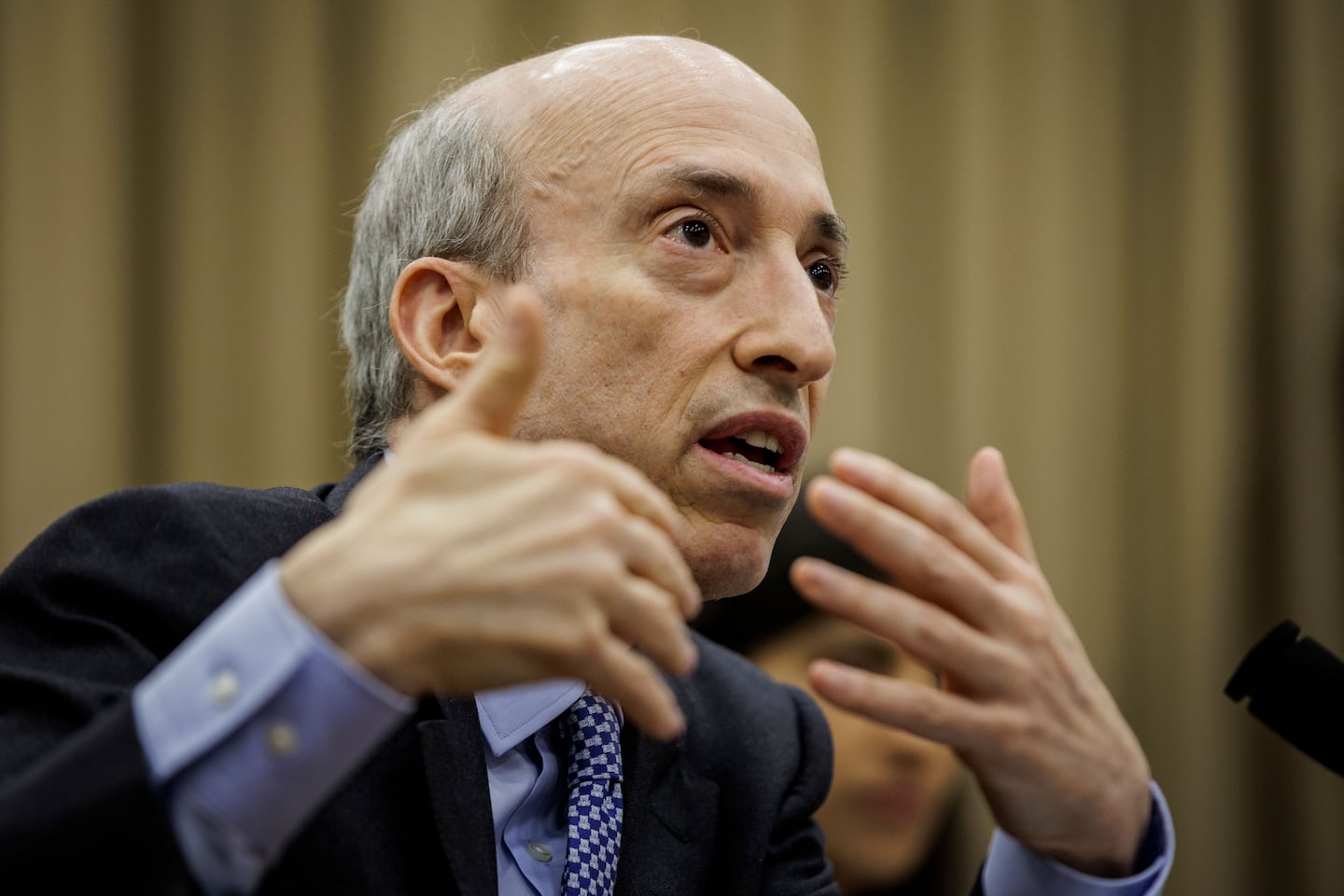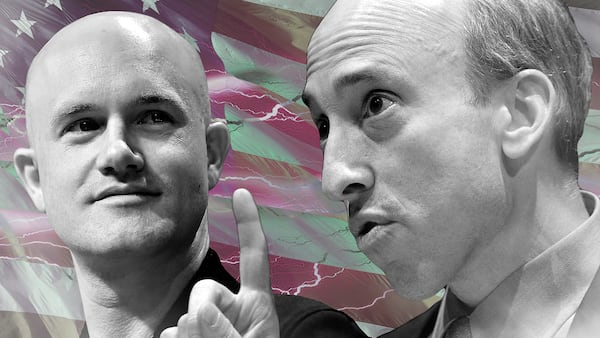- Deadline for comment on SEC proposal closes today amid twin lawsuits against Coinbase and Binance.
- ‘Slapdash’ proposal may widen the definition of an exchange to cover electronic methods of facilitating trading.
Crypto supporters warned the US Securities and Exchange Commission this week that it is overstepping its authority in trying to bring decentralised exchanges under its umbrella.
In a proposal published early last year, the commission floated the idea of broadening the definition of an exchange to any platform that “makes available” electronic methods of bringing together buyers and sellers for any kind of security.
As a result, the founders of decentralised exchanges, or DEXs, fear they could be swept into the new rule’s purview. The deadline for public comments on the proposal closes today.
‘Slapdash and troublesome’
Pro-crypto groups argue that DEXs such as Uniswap are a very different animal than the Nasdaq or other TradFi bourses because they operate on blockchain networks rather than standard databases.
In a letter sent to the SEC this week, the DeFi Education Fund slammed its proposal as a “slapdash and legally troublesome attempt to shoehorn the novel technologies in the crypto asset and DeFi spaces into antiquated and ill-fitting regulatory regimes.”
NOW READ: EU data bill threatens to upend smart contracts in potential blow for DeFi
The industry’s position clashes with the legal doctrine deployed by the SEC and the Commodity Futures Trading Commission in lawsuits filed respectively against Coinbase and Binance this year. In both those actions, regulators allege the crypto exchanges unlawfully failed to register their businesses as exchanges, as well as broker-dealers and clearing firms.

Even so, a policy expert at a DeFi company told DL News that the commission is opening itself up to litigation if it passes the proposal into regulation. The regulation is inconsistent with the way the SEC has dealt with innovation in the past, the expert said.
Automated trading
The proposal considers changes to rules that were implemented in the late 1990s when the internet was driving new kinds of automated trading. The SEC intended to create safe and fair markets while also encouraging innovation, and financial market participants widely acknowledge that these rules helped new tech to thrive.
NOW READ: These five SEC proposals could alter the course of crypto and DeFi in the US
Coin Center, a non-profit focused on crypto policy, also wrote to the commission this week. The trade group said that the SEC could be violating, among other statutes and norms, the First Amendment of the Constitution.
The SEC’s definitions in the proposal are so broad and vague, Coin Center said, that they could be used to crack down on individual software developers advocating for the use of that software for political ends.
The proposal aims to regulate what it calls “communication protocol systems” that would be considered exchanges, but it never explicitly defines what those are. So the SEC could pick targets for enforcement, Coin Centre said.
‘These platforms are acting as if they have a choice to comply with our laws. They don’t.
— Gary Gensler
“Anyone who is making available communication protocols is, in theory, fair game for enforcement,” it said.
Thousands of developers are involved in open source software projects, and some of these people have strong political and ideological reasons for publishing code, the letter said. “Those motivations may concern advocacy for the preservation of fundamental rights such as privacy, speech and association.”
NOW READ: Code is not speech: ‘Wild theories’ won’t protect DeFi developer Alexey Pertsev
Backdoor regulation
This is the third time the highly unpopular proposal has been put through a public comment period. The first 650-page draft appeared to be aimed at automated trading platforms in traditional markets and didn’t mention crypto, DeFi, blockchain, or any other crypto concept.
But it wasn’t long before crypto market participants realised that the suggested updates could have big implications for their industry. The blowback was so severe that the commission reopened the proposal twice, most recently in April of this year when staff added some extra context to clarify their thinking around crypto.
NOW READ: SEC reopens dark pools rule proposal that would regulate DeFi
At the time, crypto-friendly SEC commissioner Hester Peirce gave a blistering dissent to the reopening of the proposal. She said that the commission was treating the public comment process “not as a conversation but as a threat”, and that the poorly considered changes could stifle an innovative industry in its cradle.
SEC Chair Gary Gensler, on the other hand, has said that crypto exchanges already fall under the definition of an exchange and must comply with securities laws — an assertion to be tested in court when the commission goes up against Coinbase.
This goes for DEXs too, the chair said in April. “Yet these platforms are acting as if they have a choice to comply with our laws. They don’t.”
Gensler has said that DeFi projects tend not to be very decentralised. Supporters of this argument say that funders can engage with DeFi projects and profit off them in the same ways they would a normal business. There are always managers or front end providers or VCs at some point who could be held accountable.
NOW READ: Global regulators fire warning shot that they’re about to kneecap DeFi
The technical details: If passed, what would the proposal do?
- Update the SEC’s existing set of rules for electronic trading venues, called Regulation Alternative Trading System.
- Currently, an exchange is defined as a platform that brings buyers and sellers together and matches orders. The proposed updates would alter that definition to make an exchange anything that “makes available” any electronic method to bring together buyers and sellers of any kind of security.
- An exchange under this reimagined definition doesn’t have to match firm orders. It just has to create a place or provide a protocol where a buyer and seller could communicate about making a trade.
- Since the commission considers most crypto to be a security, DeFi protocols — and arguably even individual software developers contributing code to a DeFi project — could fall under the definition of exchange.
Have a tip on crypto regulatory matters? Contact the author at joanna@dlnews.com.



